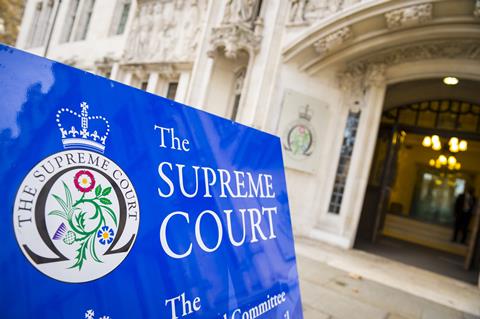Chaos. That’s how one expert I know described this week's Supreme Court judgment on Oakwood v Menzies.

I agree. I think it will be. But that might be the last thing that I agree on with a lot of people in the PI sector.
Amongst the various arguments and complexities and multiple interpretations is one clear and, I would argue, troubling issue for our sector. Shortfall.
I’ll declare my hand right now. I’m not a lawyer. And that’s relevant here because I’m regularly told that, because I’m not a lawyer, I don’t understand how shortfall works.
And there’s my point right there. It’s a difficult issue to explain to people and especially to those who matter the most – the vulnerable people, seriously injured clients.
If ‘non-lawyers’ like me don’t understand how shortfall works after close to 20 years working in the sector then it’s a fair assumption that a client lying in their hospital bed – or very often their distressed family members – won’t understand a carefully worded legal document either.
But why should they? Spoiler alert: no-one wakes up and wants to meet a serious injury lawyer. They only need one in difficult times. It’s the ultimate distress purchase.

So, for all those arguing that ‘the costs are explained in the CFA’, I’d have one question. Do you genuinely think your clients have the time to understand that when they’re either dealing with a serious injury or with a loved one in the same circumstances?
If your answer to that is yes, then I’d argue you probably need to spend more time understanding your clients. If it’s no, then why would you ask anyone to sign that agreement?
The other argument I’ve seen is that shortfall and deductions are essential to protect the law firm – but is that seriously what people think?
I’m proud that our firm doesn’t take shortfall or success fees from client damages. It’s a decision we made long ago for no other reason than it felt like the right thing to do. It still does.
We’ve structured our business on that basis ever since and we make a sensible profit without deductions. So, it can be done. And it should be done by all, in my humble opinion.
For me, shortfall has been a ticking time bomb for our sector and this might be the moment it finally goes off. This day has been coming.
Jackson said the hourly rate rewarded efficiency and he was right. The Legal Aid, Sentencing and Punishment of Offenders Act, for all its faults, was a warning to the PI sector and it hasn’t been heeded. Simply carrying on as before and passing the costs onto the client was a time-limited option and the time is running out.
An efficient, well run, self-regulated sector doesn’t need shortfall. And most importantly, nor do the clients we support. The Supreme Court has given our sector a warning and a chance to do the right thing. It’s time to act.
Richard Clark is chief executive of national firm CFG Law































4 Readers' comments